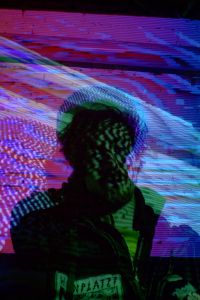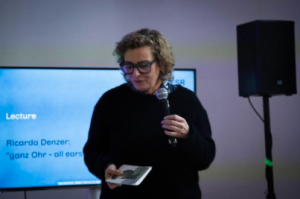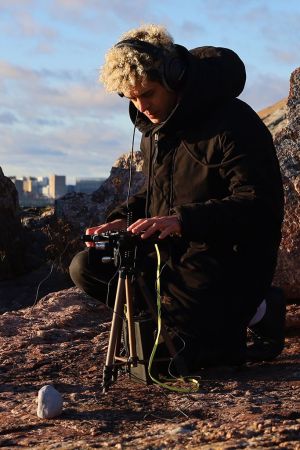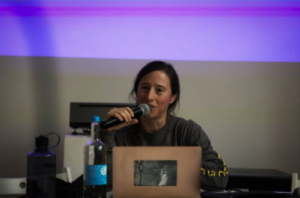The ÆSR Lab (Applied/Experimental Sound Research Laboratory) is a sound research laboratory at the interface of art and science, which as an infrastructure - with precise instruments and state-of-the-art technology - promotes interdisciplinary research and artistic creation and supports the development and experimentation with new technologies.
Management / Team
Karl Salzmann Project lead & lead: Mobile Lab
Karl Salzmann is the project lead of the ÆSR Lab and is responsible for the implementation of the Mobile Lab, which is being developed at the University of Applied Arts Vienna. At the Angewandte, he is the coordinator of the Soundart Research Plattform and teacher und Senior Scientist at Zentrum Fokus Forschung.
 +
+ © Georg Petermichl
Thomas Grill Lead: Sound Projection Lab
Thomas Grill works as a composer and performer of electroacoustic music, as a media artist, technologist and sound researcher. His artistic work encompasses the most diverse areas of audible and cross-media art, with a focus on loudspeaker-based music, electroacoustic improvisation, as well as installations and interventions. At MDW, he is the director of the University course of electroacoustic und experimental Music (ELAK). In 2018-2022 he led the multi-year artistic research project "Rotting Sounds".
 +
+ © Florian Voggeneder
Kerstin Klenke Lead: Field Recording & Digitization/Restauration Lab
Studied musicology, ethnology and theatre, film and television studies at the University of Cologne and the University of Vienna. Doctorate in ethnomusicology at the Hanover University of Music, Drama and Media. Further academic positions at the Foundation University Hildesheim, Goethe University Frankfurt/Main and the University of Vienna in research and teaching, project coordination and science/archive management. Head of the Phonogrammarchiv since March 2019.









